The Minor Arcana
The Minor Arcana in tarot is just as fascinating as the Major Arcana, but its focus lies more on everyday events and human experiences rather than the grand life archetypes. While the Major Arcana represents overarching life themes, soul development, and archetypes, the Minor Arcana serves as a way to understand how these larger forces manifest in our daily lives and actions. Further down this page, you’ll find a deeper dive into the Minor Arcana and its four suits, but first, you can familiarize yourself with the cards.
The Minor Arcana Cards and Their Meanings
Click on a card to read its meaning.
Cups
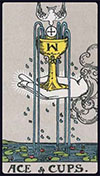
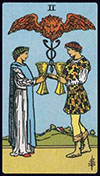
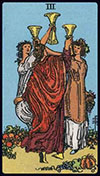
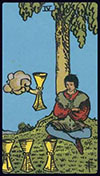
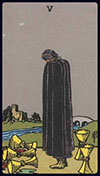
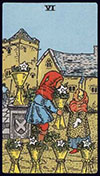
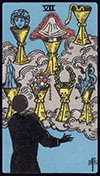
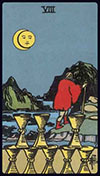
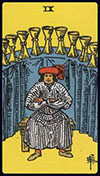
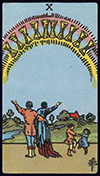
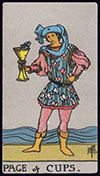
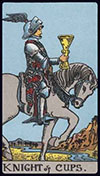
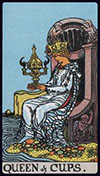
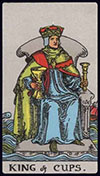
Swords
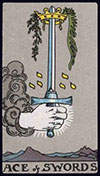
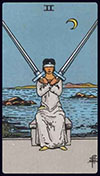
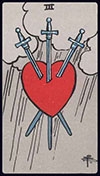
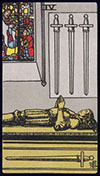
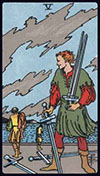
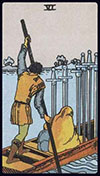
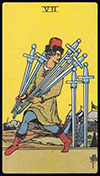
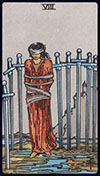
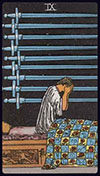
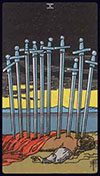
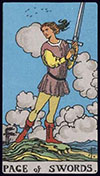
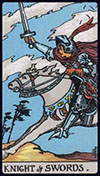
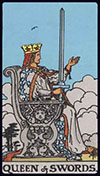
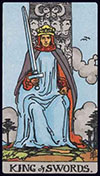
Wands
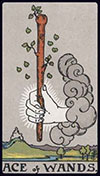
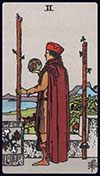
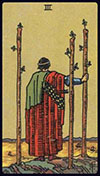
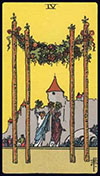
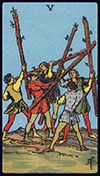
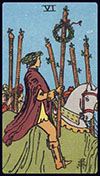
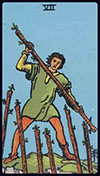
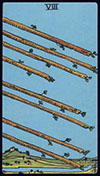
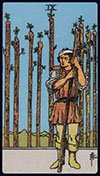
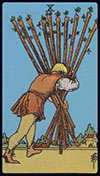
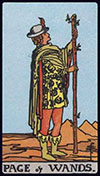
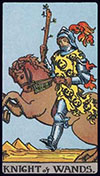
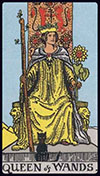
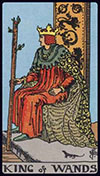
Pentacles
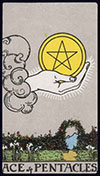
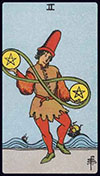
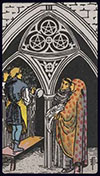
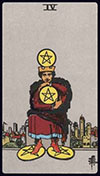
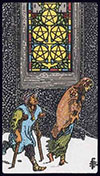
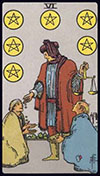
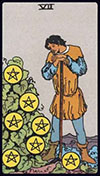
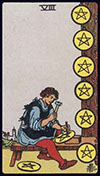
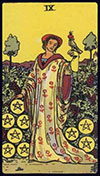
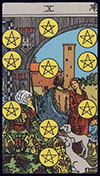
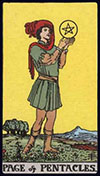
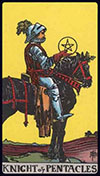
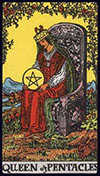
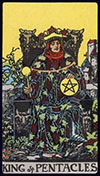
The Minor Arcana and Its Suits
The Minor Arcana consists of 56 cards divided into four suits: Cups, Swords, Pentacles, and Wands. Each suit reflects different aspects of human experience and our relationship with emotions, thoughts, material things, and creative energy.
- Cups deal with emotions, relationships, and how we process the inner, emotional landscape.
- Swords focus on thought processes, communication, conflicts, and intellect.
- Pentacles reflect the material world, including finances, work, and physical security.
- Wands are about passion, ambition, and the forces that drive us to take action.
Each card in the Minor Arcana, regardless of suit, represents an aspect of these themes but emphasizes more concrete and practical events rather than grand life questions. They show how we navigate relationships, work, challenges, and personal growth in our daily existence.
Numerological Structure in the Minor Arcana
There’s a certain consistency in how each number in the Minor Arcana can be interpreted across the four suits (Cups, Swords, Pentacles, Wands), but each number takes on its own nuance depending on the theme of the suit. In other words, while each number has a shared numerological meaning across all suits, it expresses itself differently depending on whether the card belongs to the emotional sphere (Cups), the intellectual (Swords), the material (Pentacles), or the creative/ambitious (Wands).
Here’s a more detailed explanation of numerology’s theme and how the numbers manifest within each suit:
1 (Ace): Opportunities and New Beginnings
- Cups: A new emotional beginning, perhaps a new relationship or emotional insight.
- Swords: A new thought, idea, or clarity that paves the way for intellectual growth.
- Pentacles: A new material project or opportunity, perhaps a new job or financial chance.
- Wands: New creative energy or ambition. A project or goal begins.
2: Duality, Balance, and Decisions
- Cups: A partnership or emotional balance, often related to love or friendship.
- Swords: A decision that needs to be made. Two competing thoughts or ideas requiring a choice.
- Pentacles: Balancing work and finances. Perhaps juggling several projects or resources.
- Wands: A decision regarding ambitions or creative energy. How do you distribute your drive?
3: Growth and Collaboration
- Cups: Emotional growth through friendship or group collaboration. Celebration.
- Swords: Communication or conflicts where several parties are involved. Possible group dynamics.
- Pentacles: Collaboration or teamwork in a material situation, often related to work or financial goals.
- Wands: Creative or ambitious growth. Some form of expansion or development in a project.
4: Stability and Structure
- Cups: Emotional stability or stagnation. Perhaps a period of introspection.
- Swords: A need for mental recovery or stability. A break from conflicts or stress.
- Pentacles: Financial or material stability. Holding onto what you’ve built.
- Wands: A stable foundation for creative work or passion. Celebrating an early success or a stable beginning.
5: Conflict and Change
- Cups: Emotional loss or conflict. Something has been lost or changed.
- Swords: Mental or verbal conflict. A challenge or battle between ideas or viewpoints.
- Pentacles: Financial challenge or material insecurity. Perhaps a feeling of lack.
- Wands: Competition or conflicts regarding ambitions. A competitive energy that can lead to friction.
6: Harmony and Balance After Conflict
- Cups: Emotional reconnection to the past or a time of harmony. Reunion or healing.
- Swords: Moving on from mental stress or conflict. A period of mental healing.
- Pentacles: Financial balance or generosity. Sharing or receiving help from others.
- Wands: Success and recognition. A time of reward after hard work.
7: Reflection, Introspection, and Challenges
- Cups: Emotional confusion or many choices. Needing to make a decision but feeling uncertain.
- Swords: Strategic thinking or manipulation. Needing to be clever or cautious.
- Pentacles: Reflection on material investments. Evaluating what has been achieved.
- Wands: Defending your position or ideas. Challenges that must be overcome.
8: Movement and Action
- Cups: Emotional distance or leaving something behind to move forward.
- Swords: A feeling of entrapment or limitation, often self-created. An internal struggle.
- Pentacles: Mastering your work or skills through careful and focused effort.
- Wands: Rapid movement and progress, often related to creative energy or ambitions.
9: Fulfillment and Culmination
- Cups: Emotional fulfillment and satisfaction. Enjoying the results of emotional work.
- Swords: Mental anxiety or stress. Being trapped in your own thoughts or worries.
- Pentacles: Material success and independence. Reaping the rewards of your efforts.
- Wands: Nearing the goal but feeling exhausted. The final stretch towards success.
10: Completion and Endings
- Cups: Complete emotional fulfillment, often related to family or community.
- Swords: A painful ending or betrayal. Letting go of something difficult.
- Pentacles: Material wealth and long-term stability, often connected to family or inheritance.
- Wands: Carrying a heavy burden. Taking on more responsibility than one can handle.
Court Cards: People and Roles
The court cards – Page, Knight, Queen, and King – represent different levels of maturity and involvement in all suits:
- Page: A beginner or a message, often someone new to a situation or seeking new ideas and opportunities.
- Knight: A proactive person ready to take action. Sometimes impulsive but driven and goal-oriented.
- Queen: A mature and nurturing energy, often related to developing and maintaining what has been created.
- King: A leader or authority, fully in control of the specific suit’s domain and displaying complete maturity and mastery.
The Role of the Minor Arcana in Tarot Readings
When the Minor Arcana appears in a spread, it often shows how the larger life archetypes (represented by the Major Arcana) manifest in our everyday lives. For example:
- The Tower from the Major Arcana can indicate a larger life crisis or sudden upheaval, while Five of Pentacles from the Minor Arcana may suggest a specific period of financial difficulty or the feeling of being left out.
- The Emperor from the Major Arcana represents structure and authority on a grand level, while Four of Wands from the Minor Arcana may reflect a specific event of celebration or stability in a project or home.
It is often within the Minor Arcana that we find the details of our daily challenges and successes. These cards are important because they give us insight into how we can act on a practical level to navigate the larger life themes represented by the Major Arcana cards.
Working with the Minor Arcana
Exploring the Minor Arcana is a way to understand how we relate to and manage our daily tasks and challenges. Each card acts as a mirror for how we make conscious or unconscious decisions in our relationships, work, finances, and creative processes. By understanding these smaller, more personal aspects of our lives, we gain a clearer picture of how the larger life themes manifest in our daily existence.
In combination with the Major Arcana, the Minor Arcana creates a more complete picture of how our inner and outer worlds are interconnected. The everyday events (Minor Arcana) show how the deeper archetypes (Major Arcana) affect us, and vice versa.
I appreciate your help in improving the page. If anything seems incorrect or could be improved, please click the button below to provide your feedback.